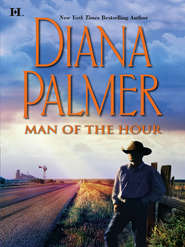По всем вопросам обращайтесь на: info@litportal.ru
(©) 2003-2024.
✖
All That Glitters
Автор
Год написания книги
2019
Настройки чтения
Размер шрифта
Высота строк
Поля
“I know that. But he has a friend who does.”
Ivory recalled with disquiet the conversation she’d had with Tim and his question about contaminated needles, and her vague reply. Oh, the poor little boy! “He told me about his friend. I wasn’t listening,” she said miserably.
“He told his mama that he picked up one of the syringes, you know, just out of curiosity, and accidentally stuck himself with it.”
“And that was all it took?”
He nodded. “Hell of a disease, ain’t it? Kids getting it, that’s the worst. Kids are the very last people who should get such a terrible thing.”
“If he’s only HIV-positive, he hasn’t necessarily got AIDS,” she said stubbornly. “Tim’s very young and they’re coming up with new treatments all the time. All the time!”
He smiled gently. “Sure.”
She shifted the bag to her other hand. She felt empty inside. She started to go and hesitated. “You won’t tell anyone else about Tim? Some people get funny when they know.”
“I haven’t told anyone else.” He shrugged. “I knew you wouldn’t treat him like a leper, or I wouldn’t have told you, either.”
She smiled. “Thanks, Mr. Galloway.”
“For what? I like Tim. He’s special.”
She heard the metallic sound of the bars being slid into place behind her and spared a thought for Mr. Galloway, who’d been robbed twice and burned out once. Gangs seemed to target small businesses these days. It was a pity that anyone would want to hurt a kind man who went out of his way to help anyone in trouble.
She walked toward the shelter despondently and hesitated at the foot of the steps, looking around. Tim was nowhere in sight. He was usually waiting for her when she came, and she’d told him that there would be some of Mrs. Horst’s gingerbread left over for him today. She’d tucked a slice, wrapped in plastic, in her purse for him. Had his mother made him stop coming? Unlikely. She was too busy trying to take care of the baby and the toddler to watch him all the time. If she had told him about his disease, maybe he thought Ivory might not want him around anymore. But Tim knew Ivory. Surely he wouldn’t think it would make her avoid him.
She secured the bag of oranges under her arm at the entrance of the shelter and opened the door. It was a sad sight, all those rows of cots and hopeless people who had no place to go. Some of them were mentally challenged, some were addicts. But most were just victims of circumstance with no education and no jobs.
Dee hadn’t arrived yet, but it didn’t take long to spot Tim and his family. She made her way through the clutter, past small colonies of Hispanics and other whites of all ethnic backgrounds, over to the side where groups of blacks huddled together. Some were Haitian, some Jamaican, some African.
Tim’s mother was originally from Zaire. She had a nobility of carriage that Ivory had always envied. She was an elegant woman for someone in her circumstances, and she had a pair of hands that could handle the most delicately detailed work. She crocheted lace. She could even tat. Her handiwork fascinated Ivory, who could sew but not crochet.
Ivory smiled. “Hello. I wondered why Tim hadn’t come to meet me.”
“Ah,” was the soft response.
Tim smiled and waved at her, but he didn’t come close. His dark eyes were hesitant, uncertain.
Ivory stuck her hands in her pockets and made a face at him. “I know. Mr. Galloway told me. You silly boy, do you think it matters to me? Friends don’t turn away from each other, do they?”
Tim shrugged and looked at his feet.
“Listen, wouldn’t you still be my friend, if I had it instead of you?” she persisted.
He looked up at her. “Sure, Ivory!”
She smiled. “Enough said?”
He smiled back. “Okay.”
Ivory looked at his mother, who seemed to relax. She shifted a sleeping baby girl in her arms.
“Here,” she said, handing him the gingerbread and the bag of oranges. “Those are for you and your friends. You can’t desert me,” Ivory told Tim gently. “Okay?”
He nodded. “Okay, Ivory.”
His mother, Miriam, lifted her face proudly. “There is a risk.” In the older woman’s eyes were the pain and resignation of years; there, too, was the pride that had made it all bearable.
Ivory nodded. “There is a risk in living at all,” she said. And she allowed the other woman to catch just a glimpse of the pain and humiliation in her own past. “And I know all about judgmental people. Probably almost as much as you do.”
Miriam managed a tired smile. The baby cried, and she rocked her, while the toddler, another girl, napped on the cot nearby. “Tim stuck himself with a bad needle.” She took a deep breath and let it out. “God in heaven, he only stuck himself.” She glanced around her with world-weary eyes. “If these people knew, they would not want us here. There was a man from Haiti who had the virus. He was beaten and his things were stolen. He had to leave to save his life.” For an instant there was fear in her face. “The children are very small...”
Ivory never touched people. Only rarely did she put an arm even around Tim. But now she put her arm around Miriam. “You’re a strong woman,” she told her. “You can do what needs doing. And no one will know unless you tell them.”
Miriam met her eyes. “It was there, for just an instant.”
“What?”
“An accent,” Miriam said. “A way of speaking. You are not from here.”
“The accent comes out only when I forget.” She forced a smile as she removed her arm.
“And now you go away, here.” She touched Ivory’s forehead. “There is no need. We understand each other, you and I.” Her eyes sparkled with pride. “You know, I am the granddaughter of a chieftain in my country, not the beggar I have become in yours. Let me tell you, if I had not dreamed of living in a big city and having pretty clothes and if I had not followed my dreams to America, I would not be in this shameful condition.”
“But you would not have Tim, either, or these two,” Ivory reminded her with a smile.
“Ah, yes. That is so.” And she smiled back.
Dee came later, and the two of them helped serve lunch and then clean up afterward. Ivory was waiting for Dee to join her late that afternoon on her way out, and she paused to wave at Tim and his family. A ragged old woman was putting a needle to a quilt she’d made of fragments of cloth that Ivory had brought her from the company—throwaways that the janitor had given her.
“What do you think, Ivory?” the old lady asked with twinkling eyes as she held up the latest circle she’d completed of the Dresden plate design.
“Beautiful, Mrs. Payne,” she said, running her fingers over it.
“This is my fourth. Perhaps nobody will steal it,” she said with resignation, looking around. “That’s the terrible thing about having no locks, dearie. Even honest people will take something when they’re desperate.”
“If you could sell one of these...” Ivory began.
Mrs. Payne smiled wistfully. “The extra money would mean a cut in my Social Security, you know. They cut your check if you make extra money.”
Ivory, blissfully ignorant of the endless red tape of Social Security, patted her awkwardly on the shoulder and murmured a goodbye.
Dee got off at her stop and Ivory continued on to her neighborhood. When the bus stopped, she huddled deeper into her coat as she started back down the sidewalk toward home, noting the cracks in the pavement and the chalk marks where children had been playing hopscotch. A little farther down there were chalk marks of another sort. There was a dark red stain where the head would have lain, a reminder of the turbulence of the city and the brevity of life.
Voices called deep in an alley. She quickened her pace, almost running when she reached her apartment building. It might be wise not to show fear, but it was stupid to pretend walking alone at night wasn’t dangerous, even in a good neighborhood like this one.
She had her key out when she reached the top step. She inserted it deftly, dashed inside and locked it. Looking out the window, she saw three big, older boys on the sidewalk glance up toward her front door. The one who seemed to be the leader said something and then laughed. He shrugged, as if he didn’t think it worth the effort to pursue her. They walked down the street, laughing raucously, talking loudly.
The leader had a pistol in his hand. He was showing it to the others. Ivory watched in resigned disgust. Tim had told her that any kid on the block could buy a gun if he had the money, and even his parents wouldn’t know he had it. Used guns were the real problem in social violence. The great unregulated, steady stream of guns obtained in pawnshops and back alleys made up the arsenal of the street gangs. And the gangs could be found in cities a lot smaller than New York. So could the guns.











